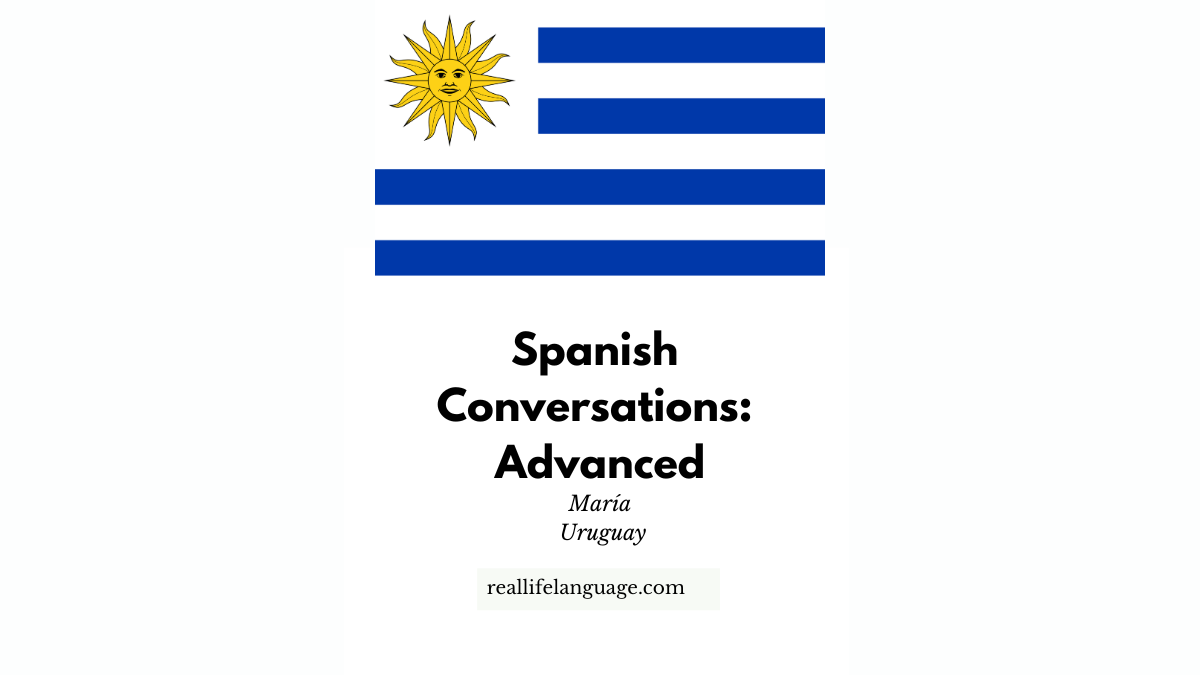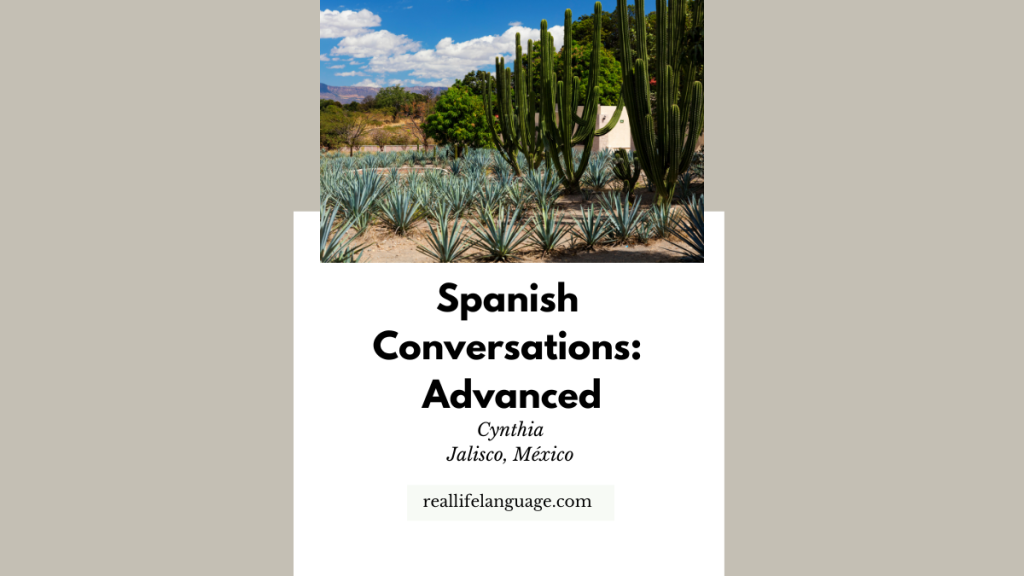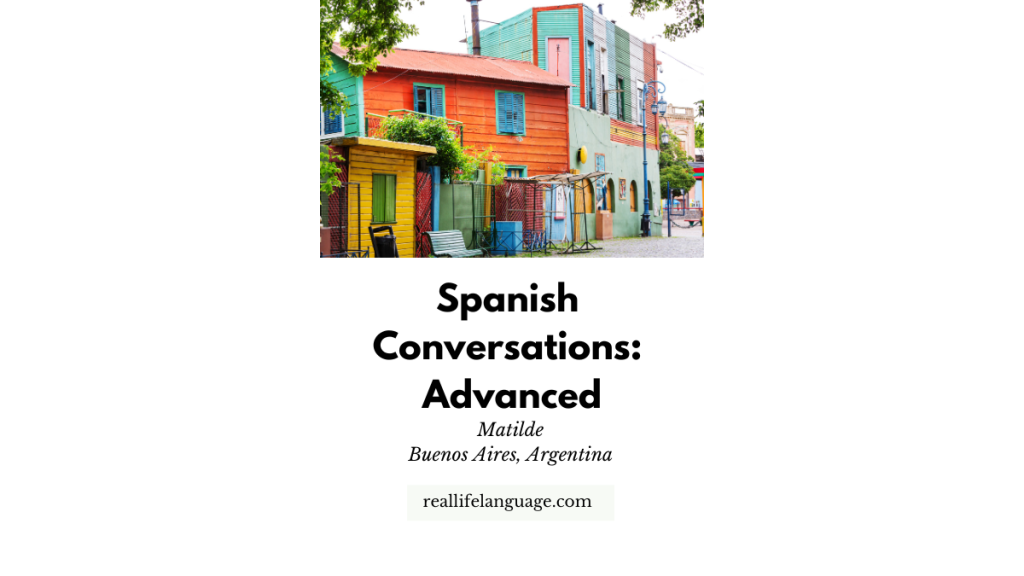
This article draws on a relaxed, wide-ranging conversation with María, a Uruguayan speaker, and is designed to help learners who want to learn advanced Spanish by exploring real-life topics: personal change, gender roles, the economy, housing, education, leisure, food and the effects of the pandemic. The interview offers natural vocabulary, useful idioms and cultural context that advanced students can practise and adopt.
Overview: life in transition
María describes a personal and social shift triggered by the pandemic: moving from city life toward nature, exploring remote work and valuing a calmer pace. She summarizes the change simply:
“my life is in a moment of change”
Useful Spanish phrase: “mi vida está en un momento de cambio” — a natural way to express personal transition. Learners who want to learn advanced Spanish should note the verbs and adjectives used to convey nuance: cambiar / cambiarse, tranquilo/a, conectado/a.
Women in Uruguay: visibility and progress
María highlights that women in Uruguay have strong visibility and access to work and social rights. She points out generational change: fifty years ago women were more often confined to the home, but social reforms—such as early adoption of female suffrage—accelerated change.
- Key vocabulary: visibilidad (visibility), derechos laborales (labor rights), sufragio femenino (women’s suffrage).
- Phrase to practise: “las mujeres tienen acceso a puestos de trabajo altos” — note adjective placement and verb choice.
Economy, housing and education
On the economy, María describes Uruguay as stable and transparent, though affected by government changes and inflation. Regarding housing, she notes that while most people have housing, there remain precarious areas and cooperative housing efforts.
Education in Uruguay is “gratuita, obligatoria y laica” (free, mandatory and secular). The speaker mentions pros and cons: accessibility and school feeding programs are strengths; overcrowding and teacher wages are challenges.
- Useful terms: inflación, vivienda precaria, cooperativas de vivienda, sobrecarga (overcrowding).
Culture: parties, leisure and food
Parties in Uruguay tend to be calmer and smaller than mega-festivals; leisure often involves outdoor walks, beaches and social rituals like sharing mate. María describes mate as a cultural staple consumed with a bombilla and calling the herb “yerba”.
- Mate vocabulary: mate, yerba, bombilla, cebador (person who prepares mate).
- Food culture: emphasis on homemade dishes and strong street-food traditions from the Río de la Plata region.
Current events, family and the pandemic
María explains that current events include a recent change of government and ongoing pandemic effects. Family remains central—large Sunday meals and close intergenerational ties. On the pandemic, she reflects on the two faces of change: expanded digital connection but loss of freedom and increased fear.
“the main factor was fear… I imagined the world being more and more towards unity, not back towards disunity”
Practical learning tips and useful phrases
To learn advanced Spanish from this kind of conversation, focus on these strategies:
- Active listening: note connectors and discourse markers used by the speaker (e.g., por ejemplo, en general, pero).
- Shadowing: repeat short sentences aloud to mimic rhythm and pronunciation—try phrases like “mi vida está en un momento de cambio” and “las mujeres tienen acceso a trabajos altos”.
- Vocabulary clusters: group words by topic (economy, housing, food) and make sample sentences.
- Contextual translation: translate a paragraph, then compare to the original to refine nuance.
Additional phrases from the conversation to practise:
- “estamos en un momento de transición” — we are in a moment of transition.
- “la educación es gratuita, obligatoria y laica” — education is free, mandatory and secular.
- “la familia tiene un lugar súper importante” — the family has a very important place.
Students who want to learn advanced Spanish will benefit from combining cultural notes with targeted practice: listen for idiomatic expressions, repeat them aloud, and use them in sentences about one’s own life.
Conclusion
María’s conversation provides a rich source of authentic language and cultural insight. It demonstrates how everyday topics—work, family, food, and politics—offer ideal material for learners aiming to learn advanced Spanish. Use the vocabulary, shadow the speaker, and practise creating your own short monologues on the same themes to build fluency and confidence.
100s of videos to learn Spanish:
https://real-life-language.kit.com/b1531a6404
How to learn advanced Spanish: A Conversation with Cynthia from Jalisco

